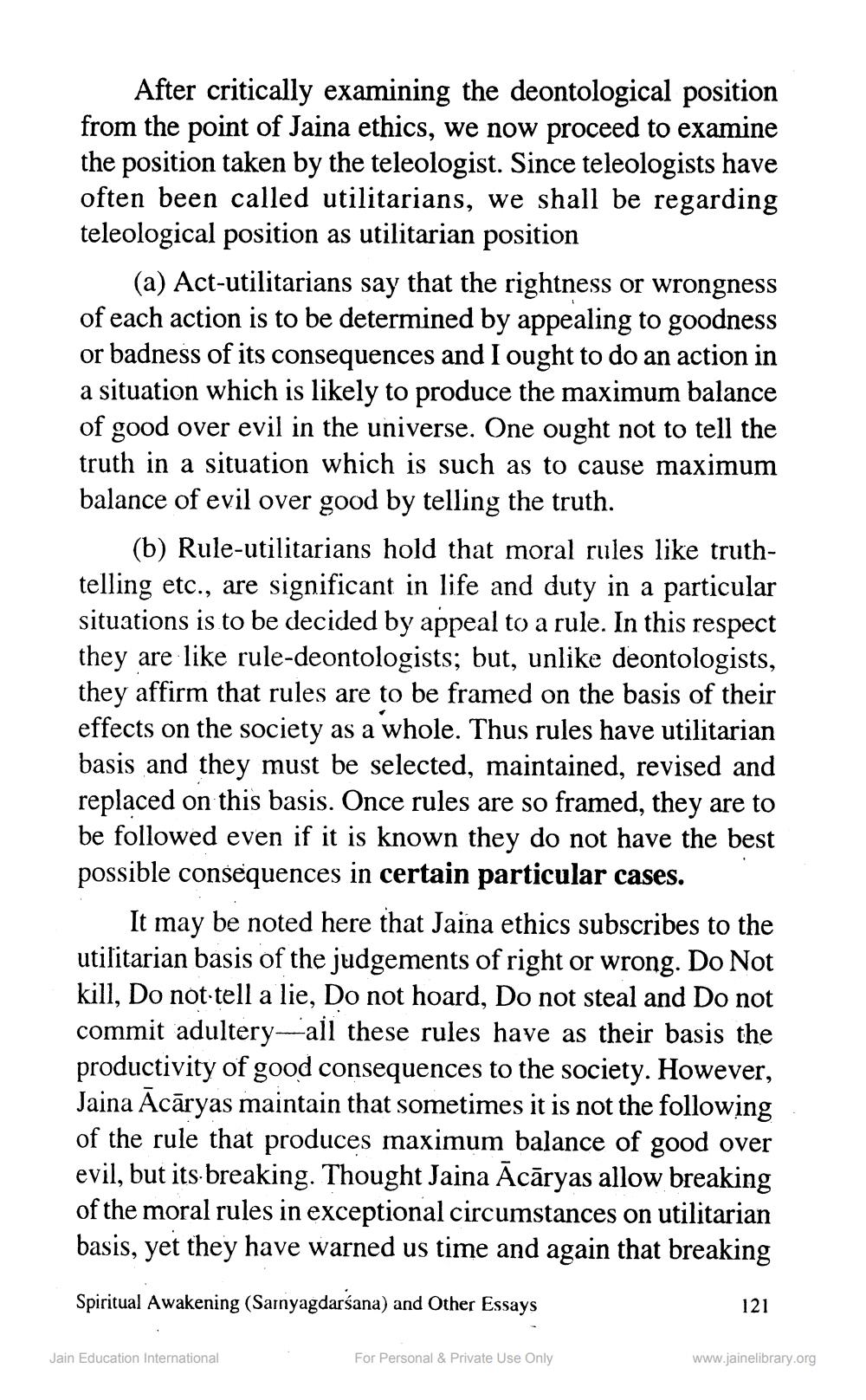________________
After critically examining the deontological position from the point of Jaina ethics, we now proceed to examine the position taken by the teleologist. Since teleologists have often been called utilitarians, we shall be regarding teleological position as utilitarian position
(a) Act-utilitarians say that the rightness or wrongness of each action is to be determined by appealing to goodness or badness of its consequences and I ought to do an action in a situation which is likely to produce the maximum balance of good over evil in the universe. One ought not to tell the truth in a situation which is such as to cause maximum balance of evil over good by telling the truth.
(b) Rule-utilitarians hold that moral rules like truthtelling etc., are significant in life and duty in a particular situations is to be decided by appeal to a rule. In this respect they are like rule-deontologists; but, unlike deontologists, they affirm that rules are to be framed on the basis of their effects on the society as a whole. Thus rules have utilitarian basis and they must be selected, maintained, revised and replaced on this basis. Once rules are so framed, they are to be followed even if it is known they do not have the best possible consequences in certain particular cases.
It may be noted here that Jaina ethics subscribes to the utilitarian basis of the judgements of right or wrong. Do Not kill, Do not tell a lie, Do not hoard, Do not steal and Do not commit adultery-all these rules have as their basis the productivity of good consequences to the society. However, Jaina Acāryas maintain that sometimes it is not the following of the rule that produces maximum balance of good over evil, but its breaking. Thought Jaina Ācāryas allow breaking of the moral rules in exceptional circumstances on utilitarian basis, yet they have warned us time and again that breaking
Spiritual Awakening (Sarnyagdarśana) and Other Essays
121
Jain Education International
For Personal & Private Use Only
www.jainelibrary.org




